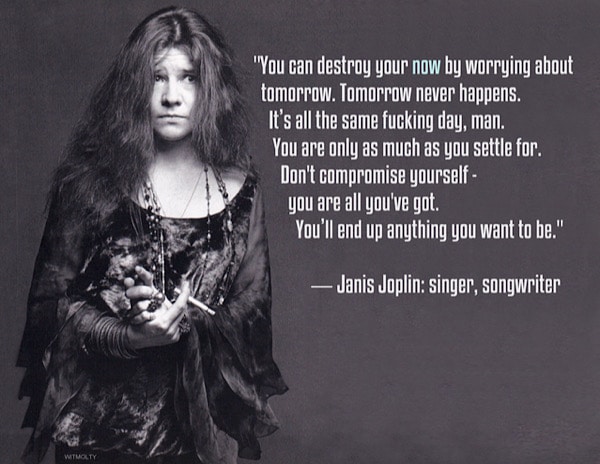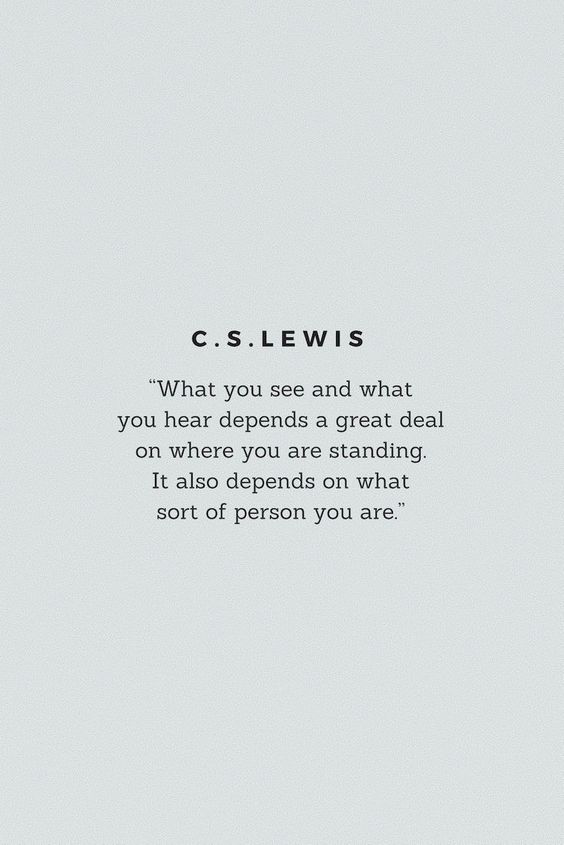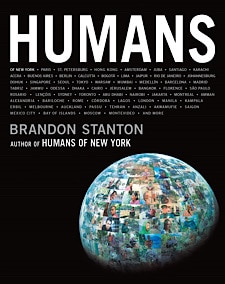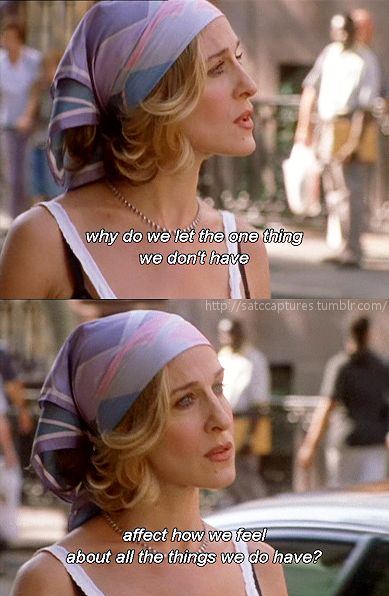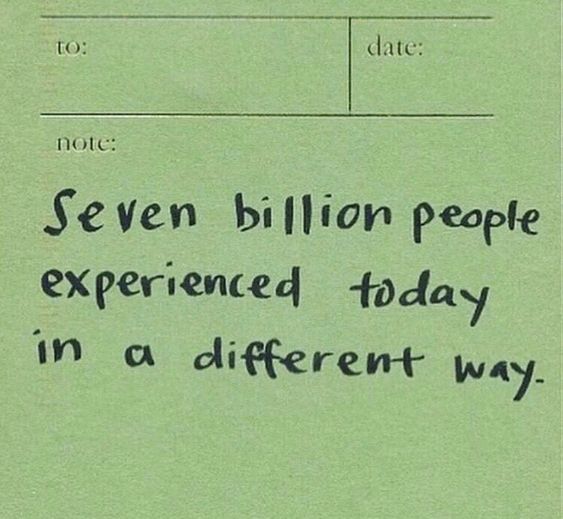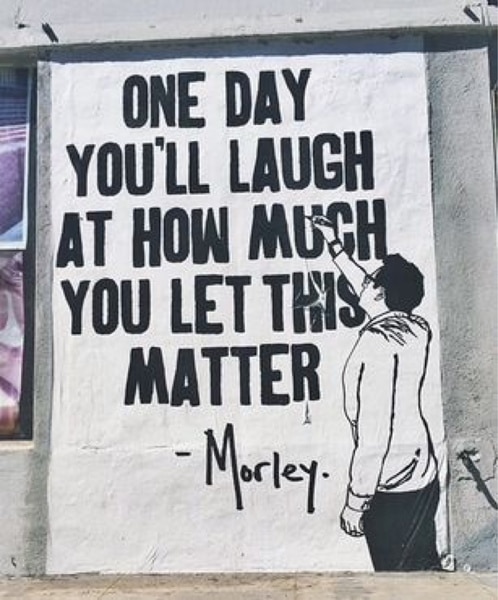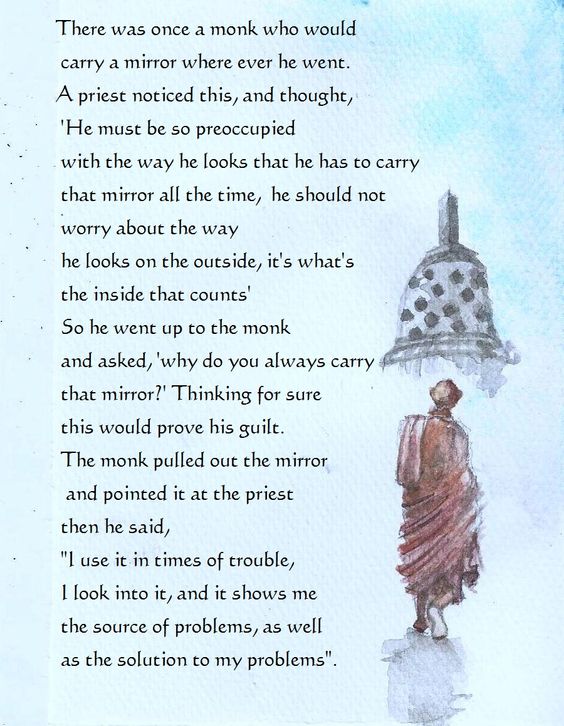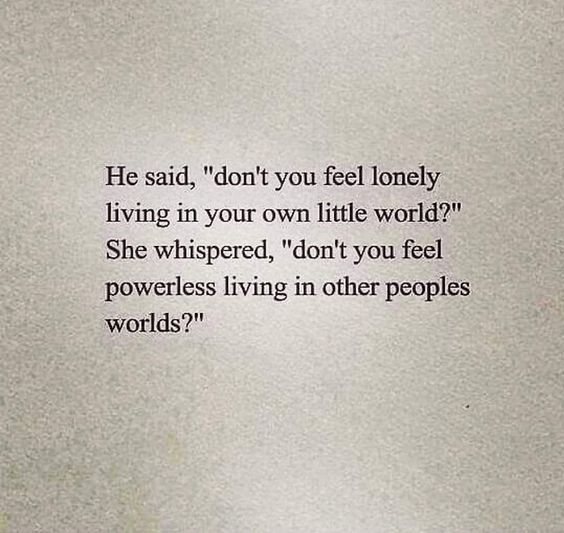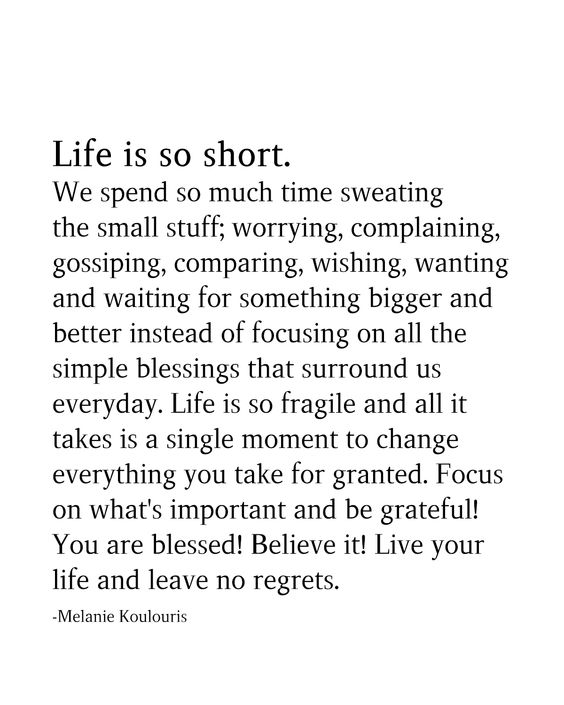“Whoever wants to see a brick must look at its pores, and must keep his eyes close to it. But whoever wants to see a cathedral cannot see it as he sees a brick. This demands a respect for distance.”
José Ortega y Gasset, via Sunbeams (Page 45)
“What you focus on expands. If you focus on the goodness in your life, you create more of it. And if you live with an open palm rather than a closed fist, you leave room for immeasurable blessings to flow through your hands.”
Alicia Keys, More Myself (Page 81)
Humans [Book]
Book Overview: Brandon Stanton created Humans of New York in 2010. What began as a photographic census of life in New York City, soon evolved into a storytelling phenomenon. A global audience of millions began following HONY daily. Over the next several years, Stanton broadened his lens to include people from across the world. Traveling to more than forty countries, he conducted interviews across continents, borders, and language barriers. Humans is the definitive catalogue of these travels. The faces and locations will vary from page to page, but the stories will feel deeply familiar. Told with candor and intimacy, Humans will resonate with readers across the globe―providing a portrait of our shared experience.
Buy from Amazon! Not on Audible…
Great on Kindle. Great Experience. Great Value. The Kindle edition of this book comes highly recommended on Amazon.
Post(s) Inspired by this Book:
Louise Hay Quote on Problems and How They Fix Themselves When We Fix Our Thinking
“I don’t fix problems, I fix my thinking. Then problems fix themselves.”
Louise Hay
Beyond the Quote (337/365)
Life isn’t easy—for any of us. I think we all can agree on that. If so, it can be assumed that life is hard—for all of us. Now, we can never know for sure how “hard” life is or isn’t for another person. We can only ever judge another person’s life from the outside looking in, which is an INCREDIBLY limited and superficial perspective. Of course, if someone is homeless or without basic necessities for survival, there are assumptions of “hard” that we can validly make. But, when it comes to judging the other people around us, how a person’s life appears to be and how their life actually is should never be assumed to be the same thing.
Read More »Louise Hay Quote on Problems and How They Fix Themselves When We Fix Our ThinkingJacob Held Quote on Perspective and How What We See Is A Reflection of Who We Are
“We can’t change what life is, but we can change how we react to and interpret it.”
Jacob Held
Beyond the Quote (148/365)
To start, a story of two dogs. Both at separate times walk into the same room. One comes out wagging his tail while the other comes out growling. A woman watching this goes into the room to see what could possibly make one dog so happy and the other so mad. To her surprise she finds a room filled with mirrors. The happy dog found a thousand happy dogs looking back at him while the angry dog saw only angry dogs growling back at him. What you see in the world around you is a reflection of who you are.
Read More »Jacob Held Quote on Perspective and How What We See Is A Reflection of Who We Are“We don’t need to be so dramatic and hyperbolic about everything. Worrying rarely helps anything, and freaking out usually does more damage than good. We need to acknowledge that trauma is an individual experience for everyone, but let’s also be mindful of how often we oversimplify the degree of our traumas while underestimating our resilience. Nothing is the end of the world until it’s the end of the world, and then nothing will matter anyway.” ~ Humble the Poet, Things No One Else Can Teach Us (Page 204)
“There is no absolute good and bad; everything is what we make of it. As we strive to understand more than we evaluate, we open up more possibilities and opportunities for things to improve and unfold the way we want them to. This requires paying attention, and allowing a situation to be complicated, and sorting through the details—zooming in—to find where all the magic is hiding.” ~ Humble the Poet, Things No One Else Can Teach Us (Page 199)
“Zooming out helps us to think more in the long term and recognize patterns so we don’t overreact in the short term. Life isn’t what happens to us; it’s how we deal with it, and how we deal with it always depends on the perspectives we can find. Zooming out helps us realize that the story is still playing out, and we shouldn’t rush to any conclusions.” ~ Humble the Poet, Things No One Else Can Teach Us (Page 140)
“Sometimes when things feel too heavy, I ask myself, ‘Will this matter in three hundred years?’ and I think about the fact that no one I know will be around then—none of their judgments, opinions, debts, or drudges—and that I should enjoy this journey while I’m still healthy enough to do so. In three hundred years it won’t matter that I wasn’t invited to this or that event or included on this or that list or was able to connect with this or that person. It won’t matter that I showed up wearing a mustard stain on my outfit or that I didn’t proofread my text message before I hit ‘send.’ Figuring out what will matter in three hundred years will result in a much shorter list—almost next to nothing.” ~ Humble the Poet, Things No One Else Can Teach Us (Page 37)
“Nothing lasts forever, and that’s both tragic and comic, depending on how we look at it—so how we look at it, our perspective, is the thing we can, and should, control. We can give ourselves a facepalm when we look at that old outfit, or we can try it on and dance around the room summoning up the spirits and smiles of yesterday—a beautiful reminder of how far we’ve come.” ~ Humble the Poet, Things No One Else Can Teach Us (Page 15)
The Dalai Lama Quote on Handling Problems by Zooming Out and Looking From a Broader Perspective
“When we help others, the focus of our mind assumes a broader horizon within which we are able to see our own petty problems in a more realistic proportion. What previously appeared to be daunting and unbearable, which is what often makes our problems so overwhelming, tends to lose its intensity.”
Dalai Lama, The Art of Happiness
Beyond the Quote (60/365)
This is where the idea of “first world problems” comes from. We will complain about and feel overwhelm from the problems that are prevalent in our world—as small or as large as that world is. If our world is small from inexperience or lack of opportunity, then our small problems will appear to be big. If our world is large from a plethora of experiences and plentiful opportunities, then even our “large” problems will appear to be small. If what we have to complain about, for example, is some stupid thing someone said to us, and our world is small and we don’t have anything else affecting us, then why would we complain and worry about anything else? That which doesn’t immediately affect us doesn’t immediately concern us. The entire scope of our focus is directed at the only thing that is calling for it, which in this case, is the stupid thing someone said to us. That is our entire world and that is our only problem to focus on. Until it’s not.
Read More »The Dalai Lama Quote on Handling Problems by Zooming Out and Looking From a Broader Perspective“Problems [are] only problems if you [think] about them that way. Otherwise they [are] life—and yours for the living.” ~ John Leland, Happiness is a Choice You Make (Page 113)
